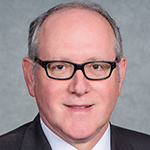
Rawpixel.com / shutterstock.com
The growing rheumatologist workforce shortage has loomed over the profession, threatening to undercut the delivery of care to the increasing number of patients with rheumatic conditions.
“The workforce shortage is an existential threat to the field of rheumatology and to the care we deliver to our patients,” says ACR President Kenneth Saag, MD, who lauded the efforts of the newly formed ACR Workforce Solutions Committee to “crucially and creatively” tackle an issue that has remained inadequately addressed for too long (see sidebar).
The significance of the workforce shortage in rheumatology was documented in a 2015 workforce study that assessed the supply and demand of the adult rheumatology workforce up to 2030.1 “Its findings were sobering,” says Daniel F. Battafarano, DO, chair of the ACR Workforce Solutions Committee, and lead author of the study. By 2030, the number of rheumatologists was projected to drop by 25% from 2015 baseline levels while the patient demand for rheumatologic care is projected to exceed the supply of rheumatologists by over 100%. “For the most part, we have seen a trend for these numbers becoming a reality,” he says.
A critical finding in the workforce study was the geographic maldistribution of adult rheumatologists across the U.S., with strong representation in the major urban and suburban areas in the Northeast, West Coast and Mid-Atlantic states, and poor representation in other geographic areas, particularly rural and underserved areas.
For pediatric rheumatologists, the projection is even more dire. Data show the current scarcity of pediatric rheumatologists across the U.S. will worsen significantly by 2030, with demand for pediatric rheumatology services exceeding twice the supply.2 Severe shortages of pediatric rheumatology providers were noted in all geographic areas.
In October 2021, the ACR Board of Directors approved a three-year workforce plan developed by the Workforce Solutions Committee that will address five areas of workforce intervention:
- Increasing fellowships;
- Promoting adult and pediatric rheumatology;
- Forming partnerships in managed care;
- Creating virtual training for primary care physicians (PCPs) and advanced practice providers (APPs); and
- Developing grants and awards to support workforce growth.
The recommended projects within each intervention area will focus on regions with a limited number of rheumatologists but that are supported by a range of community assets. These include a strong pipeline of medical schools and resident programs, a patient population that can support a full-time rheumatologist, not-for-profit hospitals open to supporting trainees, and legislation that permits APPs to provide patient care for rheumatic diseases.
The following describes the innovative approach to enhancing the rheumatology workforce in underserved areas proposed by the Workforce Solutions Committee.



